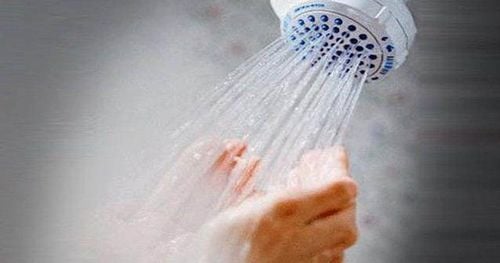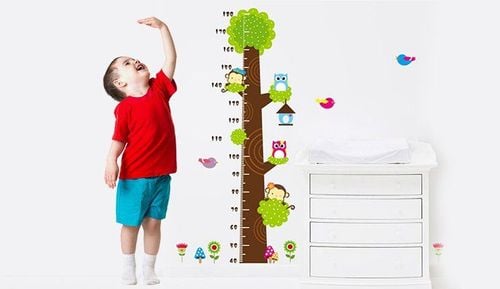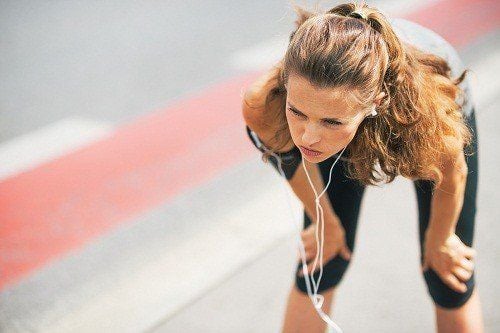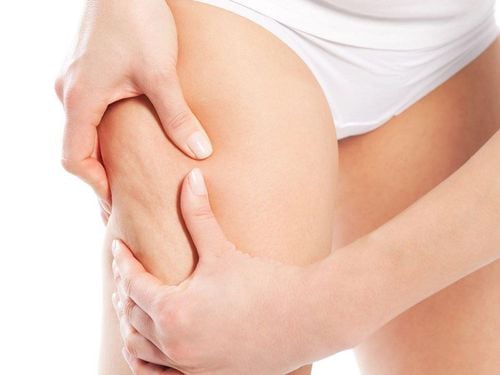This is an automatically translated article.
Most people want to take a hot shower in the morning. But did you know that taking a cold shower should also have a place in your daily routine, especially after working out or hitting the gym. Learn more about the benefits of taking a hot or cold shower after a workout in the article below.
1. Cold shower versus hot water: Which is better?
1.1. How does a cold shower help? Cold showers have many benefits. Unless you are unwell or have been advised by your doctor not to take cold showers. Let's look at some of the following benefits of cold showers:
Improves circulation After an intense workout, a cold shower will help relax the muscles. This prevents soreness and improves blood circulation to the body parts. They are also known for their anti-inflammatory and pain-relieving effects.
Protect your skin and hair When you shower with cold water, it doesn't strip your skin and hair of its natural oils. Cold water tightens the pores and tightens the skin. It is also gentler on your hair and prevents hair loss.
Make you more alert and energetic In the morning, the cold water of the shower hits your body, making you completely awake. This shock increases your heart rate and oxygen levels, leaving you alert and energized.
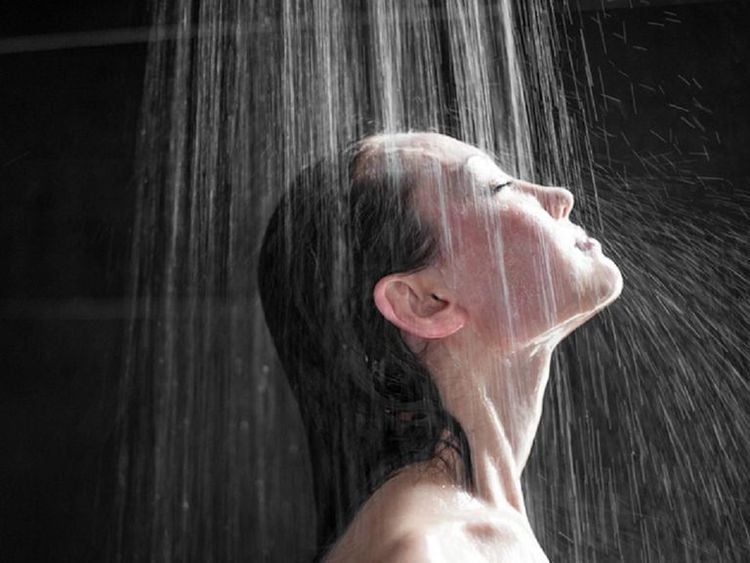
Tắm nước lạnh buổi sáng giúp bạn thêm tỉnh táo và tràn đầy năng lượng
Weight loss can potentially assist There are a number of fat cells in the body, especially around the neck and shoulder area, that generate heat by burning fat. Your cells specifically do this when your body is exposed to cold stimuli, like cold water. This can help with weight loss.
Increases Circulation Since cold showers make blood circulate faster in the body to maintain ideal body temperature, they are beneficial in reducing inflammation and potentially preventing cardiovascular disease.
Relieves Itchy Skin If you have a skin condition like eczema that makes you itchy, a cold shower can help relieve the itching sensation that makes you want to scratch.
1.2. How does a hot bath help? If you can't relax after a stressful day, a hot bath can help. Here are some benefits of a hot bath:
Improves muscle and joint health When you take a hot bath, it relaxes the nerves and muscles; This makes you feel full body relaxation. Hot water can also improve blood circulation which can reduce stiffness in joints like ankles, knees and shoulders.
Relieve Respiratory Symptoms An ancient natural remedy for colds and coughs is to use steam inhalation. When you stand under a hot shower, the steam and heat from the water will loosen phlegm, open your airways, and clear your nose.
Reduces Blemishes Steam and heat from a hot shower will open clogged pores. After this article, you can remove oil and dirt from your skin, reduce acne bran and blackheads.
Improve sleep quality A hot bath helps to release tension in the body and relax the muscles. This causes a feeling of fatigue, which helps you sleep better. All you need to do is make sure the water isn't too hot.
Hot and cold showers both have their own benefits. Ideally, you should shower with lukewarm water, then apply moisturizer on your body while it is still damp. While a hot shower can help relax the muscles and clear the nose, a cold shower can relieve itchy skin. Depending on the weather and any medical conditions you may have, you may choose one way or the other. Definitely avoid cold showers in winter and if you have a fever or are being treated for a cold. Also, if you don't like cold showers, make sure the water is at least warm.
MORE: Compare the benefits of cold and hot showers
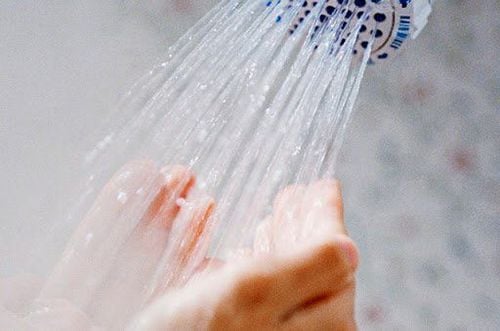
Tùy thuộc thời tiết và tình hình sức khỏe của bạn để chọn cách tắm phù hợp
When to take a hot shower or a cold shower?
Cold showers are best taken after an intense workout, right after you wake up, and right after you get home from work to remove dirt and grime. In the summer, showering with warm or cold water can help you stay less sticky in wet weather. Hot showers work if you shower an hour or two before bed and when you're unwell. If you're done with your massage, take a hot shower to allow the essential oils to penetrate your skin.
| Tắm nước lạnh | Tắm nước nóng |
| Giảm tổn thương da do nhiễm trùng, củng cố hàng rào bảo vệ tự nhiên của da và cải thiện quá trình sinh sản của tế bào. | Thư giãn cơ và đau khớp |
| Tăng cường hệ thống miễn dịch của bạn | Làm thông đường thở |
| Đóng lỗ chân lông và làm săn chắc da | Giúp ngủ ngon hơn |
| Giảm rụng tóc | Mở lỗ chân lông dẫn đến làn da sạch sẽ |
| Thư giãn các cơ bị đau sau khi tập luyện | Giảm viêm và phù nề |
| Giảm ngứa da | Giảm đau đầu và có tác dụng làm dịu |
| Có thể giúp giảm cân | Giảm mệt mỏi và căng thẳng |
So, hot shower or cold shower, which is better?
Hot and cold showers both have obvious benefits, so what should you do? Ideally, you should shower with warm water tolerable, and apply moisturizer to damp skin after bathing. Another approach is to take a shower as cold as possible and stand in it for a minute. When the minute is up, you then change the water as hot as you can bear for another minute. Alternate between one minute of cold and hot for three to five cycles. The health benefits come from the fact that cold water constricts blood vessels. This means that all the blood will go to the middle of the body, and the hot water will open up the blood vessels and force the blood out again. This can completely pump blood through the muscles and organs and is great for helping to regenerate and detoxify the body.

Tắm nước nóng và nước lạnh xen kẽ giúp máu trong cơ thể được lưu thông tốt hơn
2. Should I take a hot or cold shower after a gym session?
After a workout, it's a good idea to take a hot shower for a few reasons:
A hot bath is a popular way to relax muscles before bed because a hot bath activates the parasympathetic nervous system that makes them i'm tired. In addition, taking a hot bath is very good for muscle relaxation. Soaking in hot water effectively relieves stress on the body and can help soothe muscle fatigue.
However, hot showers have a few downsides including:
Hot showers can dry out and irritate your skin. Hot water causes damage to the keratinocytes located in the outermost layer of the skin - the epidermis. By breaking down these cells, it creates dry skin and prevents the cells from retaining moisture.
They can also make some skin conditions worse. Higher temperatures are more likely to dry out the skin and worsen conditions like eczema. Hot showers can make you itch. Friedman says heat can cause mast cells (which contain histamine) to release substances in the skin and cause itching.
They can also raise your blood pressure. If you have problems with high blood pressure or metabolic heart disease, taking a bath that is too hot can make these conditions worse.
Please dial HOTLINE for more information or register for an appointment HERE. Download MyVinmec app to make appointments faster and to manage your bookings easily.
References: skinkraft.com, healthline.com




